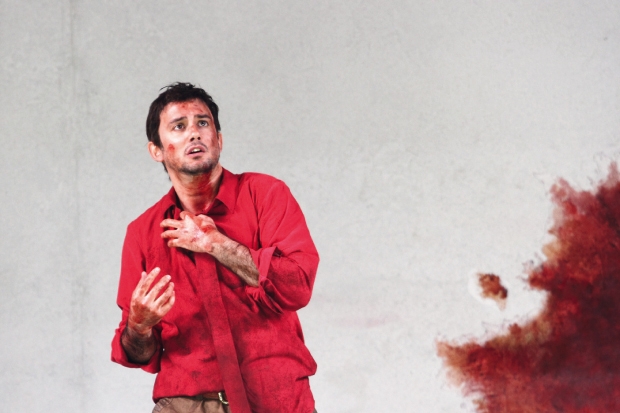Mozart’s first great opera, Idomeneo, is not often performed, and perhaps it’s better that way. It should be seen as a festival work, celebrating qualities that we rarely reflect on, but are of the utmost importance. In his fine essay on the opera, David Cairns writes that it encompasses ‘love, joy, physical and spiritual contentment, stoicism, heroic resolution; the ecstasy of self-sacrifice, the horrors of schizophrenia, the agonising dilemma of a ruler trapped in the consequences of his actions; mass hysteria, panic in the face of an unknown scourge, turning to awe before the yet more terrible reality; the strange peace that can follow intense grief. Idomeneo, finally, moves us because it holds out the possibility of human nobility in a context of unblinking psychological truth.’
For the contemporary opera director such words must seem very quaint: certainly for Martin Kusej, who directs the new Royal Opera production, and who presents Idomeneo as a work about regime change.

Get Britain's best politics newsletters
Register to get The Spectator's insight and opinion straight to your inbox. You can then read two free articles each week.
Already a subscriber? Log in






Comments
Join the debate for just £1 a month
Be part of the conversation with other Spectator readers by getting your first three months for £3.
UNLOCK ACCESS Just £1 a monthAlready a subscriber? Log in